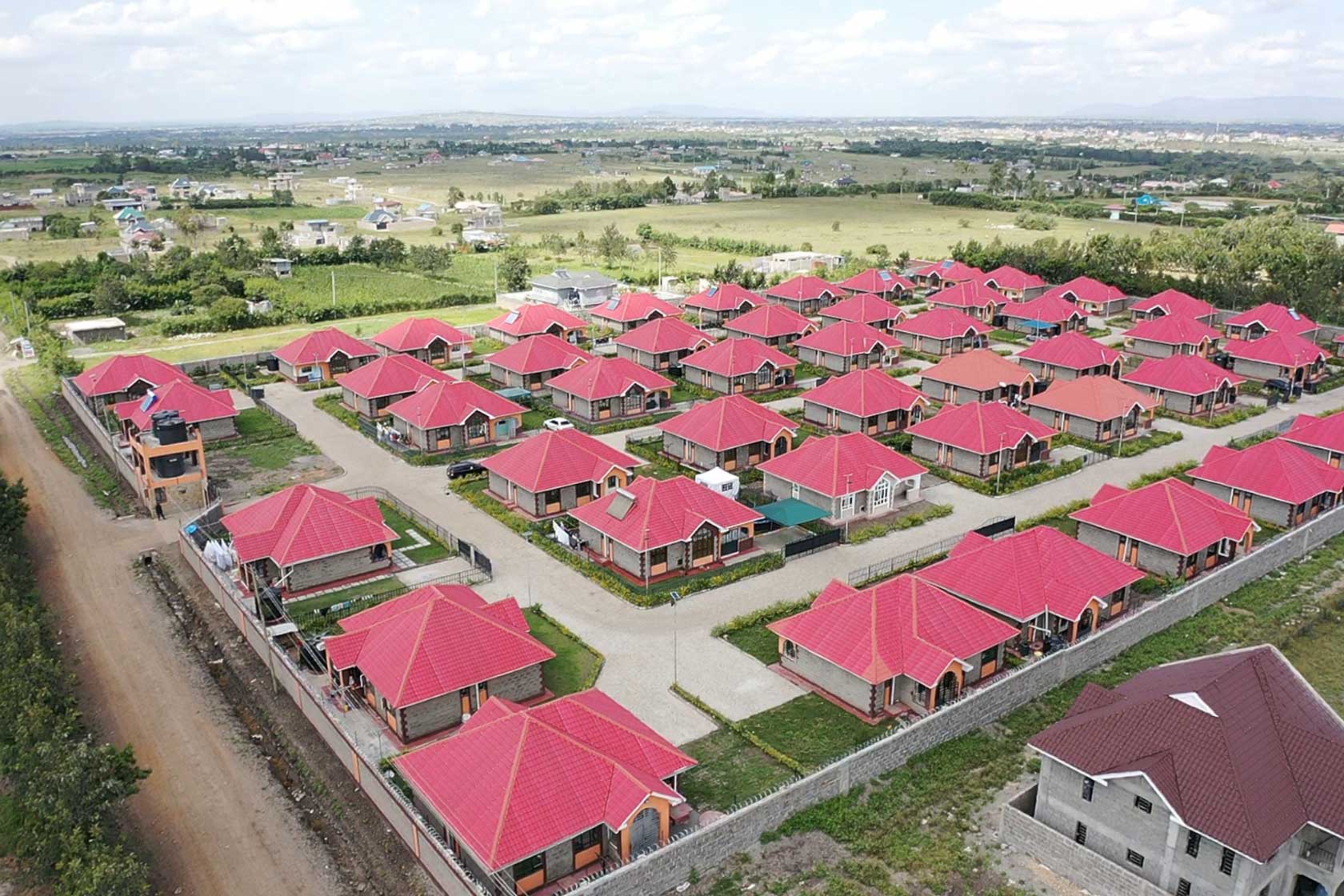In recent years, real estate investment in Kenya has emerged as one of the most reliable ways to build wealth and secure financial stability. With a growing population, rapid urbanization, and increasing demand for housing, the Kenyan real estate market offers numerous opportunities for both seasoned and first-time investors. Whether you’re looking to generate passive income through real estate, achieve capital appreciation, or diversify your investment portfolio, real estate is a smart choice for Kenyans. This article explores why investing in property is a wise decision and provides practical tips to help you get started.
The Stability of Real Estate Investments
Unlike volatile investment options like stocks or cryptocurrencies, real estate is a tangible asset that retains value over time. This makes it a stable and secure option for long-term wealth building. Even during economic downturns, property values tend to recover and grow, making real estate investment in Kenya a resilient choice. Additionally, owning physical property provides a sense of security that paper assets cannot match.
Read also: The Benefits of Off-Plan Property Investment in Kenya
High Demand for Housing in Kenya
Kenya’s real estate market is driven by a high demand for housing, particularly in urban areas like Nairobi, Mombasa, and Kisumu. The country’s rapid urbanization and population growth have created a significant shortage of affordable housing in Kenya, presenting lucrative opportunities for investors. The government’s Big Four Agenda, which includes a focus on affordable housing, has further boosted the sector by offering incentives and creating a favorable environment for real estate development.
Passive Income through Rental Properties
One of the most attractive benefits of real estate investment in Kenya is the potential to earn passive income through rental properties. With the rising demand for housing, rental yields in urban areas have been steadily increasing. For instance, properties in Nairobi’s suburbs like Kilimani, Kileleshwa, and Ruaka offer rental yields of up to 7-10% annually. This steady cash flow can supplement your income and provide financial security, especially during retirement.
Moreover, rental properties offer flexibility in management. You can choose to manage the property yourself or hire a professional property manager to handle tenant relations, maintenance, and other responsibilities. This makes real estate an ideal option for those seeking a hands-off investment.
Capital Appreciation Over Time
Another compelling reason to invest in real estate is the potential for capital appreciation. Over the years, property values in Kenya have shown consistent growth, especially in areas with developing infrastructure like Thika Road, Ngong Road, and Mombasa’s North Coast. For example, land prices in Nairobi’s satellite towns have doubled or even tripled in the past decade.
Investing in real estate allows you to benefit from this appreciation, enabling you to sell the property at a higher price in the future or use it as collateral for other investments. This long-term wealth accumulation makes real estate a cornerstone of financial planning for many Kenyans.
Diversifying Your Investment Portfolio
Diversification is a key principle of smart investing, and real estate offers an excellent way to balance your portfolio. Unlike stocks or bonds, which are subject to market volatility, real estate provides a stable and predictable return on investment. By adding property to your portfolio, you can reduce risk and protect your wealth from economic fluctuations.
Additionally, real estate acts as a hedge against inflation. As the cost of living rises, so do property values and rental incomes, ensuring that your investment retains its value over time.
Read also: The Role of Smart Home Technology in Real Estate Value
Tax Benefits and Government Incentives
The Kenyan government has introduced several incentives to encourage real estate investment in Kenya. For instance, investors in affordable housing projects benefit from tax exemptions and reduced stamp duty rates. Additionally, mortgage interest and property-related expenses are tax-deductible, reducing the overall cost of ownership.
Programs like the Boma Yangu Initiative allow Kenyans to save toward homeownership while earning interest on their contributions. These incentives make real estate an even more attractive investment option.
Flexibility in Real Estate Investment Options
Real estate offers a variety of investment options to suit different budgets and goals. Whether you’re interested in residential properties, commercial buildings, or undeveloped land, there’s something for everyone. For those with limited capital, real estate investment trusts (REITs) provide an opportunity to invest in property without the need for large upfront costs. REITs allow you to buy shares in a portfolio of properties, earning dividends from rental income and capital gains.
Challenges and How to Overcome Them
While real estate offers numerous benefits, it’s not without its challenges. High initial capital requirements, legal complexities, and market risks can deter potential investors. However, these challenges can be mitigated with proper planning and professional guidance.
- High Initial Capital: Consider starting small with affordable properties or partnering with others to pool resources.
- Legal Hurdles: Work with a qualified real estate lawyer to navigate legal and regulatory requirements.
- Market Risks: Conduct thorough research and due diligence before making any investment decisions.
Steps to Start Investing in Real Estate
- Assess Your Financial Readiness: Evaluate your savings, income, and expenses to determine how much you can afford to invest.
- Set Clear Goals: Define your investment objectives, whether it’s generating rental income, achieving capital appreciation, or diversifying your portfolio.
- Research the Market: Identify high-demand areas and emerging markets with growth potential.
- Work with Professionals: Engage real estate agents, lawyers, and financial advisors to guide you through the process.
- Start Small: Begin with a single property and gradually expand your portfolio as you gain experience and confidence.
Investing in real estate is a smart choice for Kenyans looking to build wealth, generate passive income, and secure their financial future. With high demand for housing, government incentives, and the potential for capital appreciation, the Kenyan real estate market offers numerous opportunities for growth. By understanding the market, overcoming challenges, and taking calculated risks, you can unlock the full potential of real estate investment in Kenya.
Whether you’re a first-time investor or a seasoned pro, now is the perfect time to explore the possibilities and take the first step toward achieving your financial goals. Start your journey today and discover why real estate is one of the most rewarding investments you can make.
Read also: Quality and Affordable Gated Communities in Kenya





